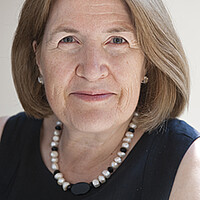Angry? That's not how Donald Trump voters see themselves.
Loading...
| Manassas, Va.
Super Tuesday, it would seem, was a confirmation of the idea that this Republican primary season belongs to the “angry voter.” Donald Trump walked to victories in seven of the 11 states that voted Tuesday, with antiestablishment Sen. Ted Cruz winning three of the others.
Yet that was not what the actual voters here in Virginia – which went for Mr. Trump – thought about themselves. Tired of being ignored, yes. Contrarian, sure. Frustrated, definitely.
But angry? Most said they just wanted change, and they didn’t trust that anyone within the establishment would really bring it.
But Trump would.
How are they so sure?
Well, start with how panicked the establishment is.
“I was reading The Washington Post on a train a couple of days ago, and an editorial was basically saying: Pick anybody but Trump,” says a 20-something voter in Manassas, Va. “I don’t think people like to be told that. That’s too much like the establishment.”
Indeed, among Trump voters here Tuesday, there was palpable sense of rebellion. Many – including the 20-something – asked not to be identified by name, citing concerns about reprisals at work.
And from the vantage point of the polls, their rebellion smells a lot like anger. Virginia exit polls found that more than 1 in 3 Republican voters said that they were “angry” at the federal government. Trump won 44 percent of those votes – double that of Sens. Marco Rubio (22 percent) or Ted Cruz (21 percent.)
Moreover, most Republican voters said they felt “betrayed” by politicians from the Republican Party (52 percent) and wanted the next president to be from outside the political establishment (49 percent).
What are Trump voters “angry” about?
“It’s the broken promises,” says Bryan Sunday, a computer analyst and retired Navy veteran in Warrenton, Va., explaining his vote for Donald Trump.
“We already have a set of immigration laws in place, but they basically seem to ignore them,” he adds. “I’m so frustrated with the outcome of what’s been happening, I’m not for either party.”
But back of that concern is another. United States veterans are not being properly cared for, he adds. “Executives in the VA [Veterans Administration] are getting bonuses, but where is the care going? It seems to be they’re putting in these immigrants first.”
By some measures, Virginia is less “angry” than other states. In Georgia and Alabama, 6 in 10 Republican voters claimed that label.
Compare that with Democrats, and you get a clear picture why Hillary Clinton consolidated her front-runner status as Trump consolidated his.
Some 58 percent of Democrats here who were “angry” at the federal government went to Bernie Sanders, but they made up only 13 percent of the Democratic vote.
Farzin Farzad, who was born in Iran and works in human relations at George Mason University in Fairfax, Va., says the tone of the race feels familiar.
“One thing you notice in authoritarian regimes is that leaders and the media try to rile up emotion,” he says.
He adds that he understands the frustration. “A lot of people feel very frustrated and stuck after the 2008 financial crash.”
He does, too. He says he backs Senator Sanders because “he is angry about the right things,” such as income distribution.
The difference between Sanders and Trump is that “Bernie is not directing his anger at a particular demographic of people,” he says.
“People are so frustrated with their situation they get angry about things that really don’t affect them, like Muslim Americans,” he adds.
Mrs. Clinton swept exit polls on the Democratic side in all but four categories. Along with the issue of income inequality, Sanders scored higher on which candidate “cares about people like me” (55 percent) and is “honest and trustworthy” (77 percent) and anger about the federal government (58 percent).
“We have to make America whole,” Clinton said, addressing such concerns in remarks to supporters Tuesday night in Miami. “I believe what we need in America today is more love and kindness.”
It’s a theme that she has referenced before over the years, such as when she spoke of a “new politics of meaning” in 1993.
Some new immigrant voters – a major demographic in northern Virginia – say they appreciate the tone.
“She talks to everybody, to Spanish people, she’s talking about [Muslims], Mexican people,” says Miguel Umana, a plumber voting in his third presidential election in the US. “This country was built by immigrants. [Trump] is talking too much about them.”
Speaking from his Mar-a-Lago resort in Palm Beach, Fla., Trump commented on the new Clinton theme:
“She wants to make America whole again and I’m trying to figure out what that’s all about,” he said. “Making America great again is so much better than making America whole again.”
But he also dialed back some of the divisive rhetoric.
“We’ll be more inclusive,” he said. “I think we’re going to be more unified, we’re going to be a much bigger party, and I think we’re going to win in November.”






